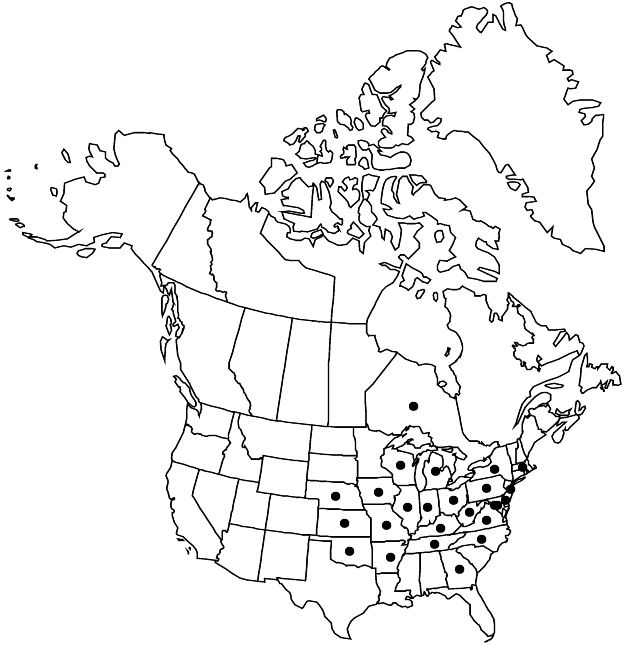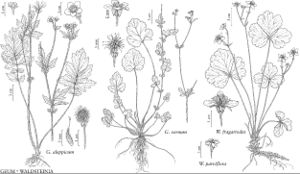Geum vernum
Fl. N. Amer. 1: 422. 1840.
Plants leafy-stemmed. Stems 20–70 cm, pilose or sparsely pilose, hairs septate. Leaves: basal 4–27 cm, blade simple or pinnate, leaflets 3–11, terminal leaflet larger; cauline 2–7 cm, stipules ± free, 8–25 × 7–12 mm, blade pinnate to 3-foliolate. Inflorescences 3–13-flowered. Pedicels glandular-downy, becoming glabrate in fruit. Flowers erect; epicalyx bractlets absent; hypanthium green; sepals reflexed, 1–3 mm; petals spreading, yellow to cream, oblong to elliptic, sometimes obovate, 1–2 mm, equal to or shorter than sepals, apex rounded. Fruiting tori on 3–7 mm stipes, glabrous. Fruiting styles geniculate-jointed, proximal segment persistent, 1.5–3 mm, apex hooked, nearly glabrous except for few septate-glandular hairs, distal segment deciduous, 0.7–1 mm, nearly glabrous except for short hairs. 2n = 42.
Phenology: Flowering spring.
Habitat: Moist woods, disturbed moist areas, flood plains, openings
Elevation: 0–600 m
Distribution

Ont., Ark., Del., D.C., Ga., Ill., Ind., Iowa, Kans., Ky., Md., Mass., Mich., Mo., Nebr., N.J., N.Y., N.C., Ohio, Okla., Pa., Tenn., Va., W.Va., Wis.
Discussion
Geum vernum is distinctive and is recognized by its early flowering, minute petals, lack of epicalyx bractlets, and heads of achenes soon elevated well beyond the recurved hypanthia and sepals. Recently, it has been expanding its range northward and has been collected with increasing frequency in southern Ontario, Massachusetts, Michigan, New York, and Wisconsin. No specimens could be located to confirm reports of G. vernum from Mississippi or Texas.
Selected References
None.
